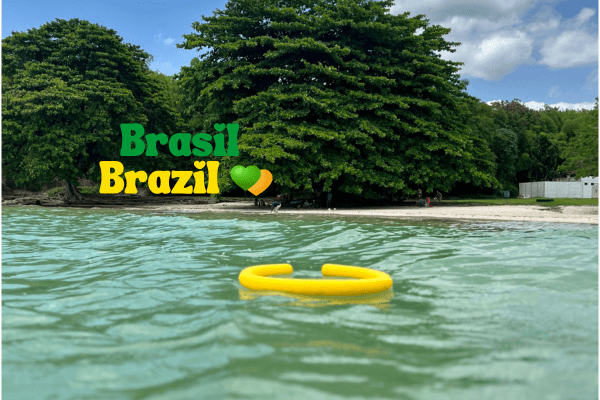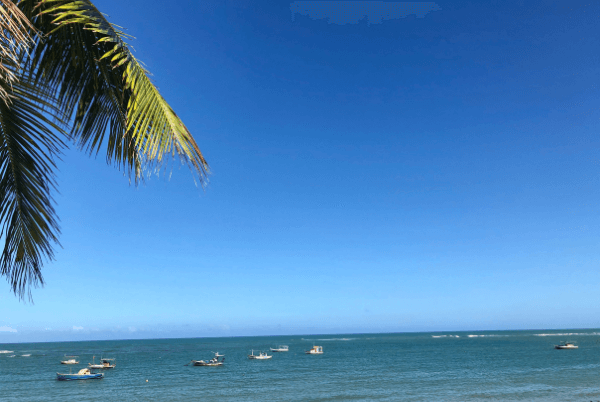I feel blessed that I was born and raised in an oceanfront city in Brazil. While many people have never seen an ocean, I could wake up every morning to see a beautiful sunrise, walk on the beach and swim in the warm water of the Atlantic Ocean.
Last December, I went to Brazil and, as always, I was delighted by its beautiful and charming beach towns. However, I noticed more plastic and waste on our beaches this time than on my previous trips.
In my daily beach walks, I couldn’t stop thinking that we must take collective responsibility and pledge to protect our oceans, ensuring their health and vitality for future generations. And as I travel between the beaches of California and Brazil, I feel that there is a big contrast in the allocation of resources to solve this issue.

Here are a few problems:
Our oceans are magnificent, life-sustaining ecosystems that cover over 70% of the Earth’s surface. They provide us with oxygen, regulate our climate, and support an incredible diversity of marine life. However, our actions, particularly the improper disposal of plastic and waste on beaches, have put this fragile ecosystem at risk. Read more here: https://bit.ly/3p0lrGZ.
1. The Problem of Plastic Pollution:
Plastic toxic waste has become a pressing environmental issue, with millions of tons of plastic waste entering our oceans yearly. It severely threatens marine life and contaminates our food chain, impacting human health. One of the significant contributors to this problem is the careless disposal of plastic items, such as bottles, bags, and single-use packaging, on beaches. The tides often carry these items away and find their way into the ocean, causing immense harm.

Unfortunately, plastic pollution and waste entering our oceans can be more visible in developing countries due to a lack of resources to clean the beaches, funds to educate its population, and the slackness of government agencies.
2. The Impact on Marine Life:
Marine animals mistakenly consume or become entangled in plastic debris, leading to injury, suffocation, and even death. Sea turtles, for instance, often mistake plastic bags for jellyfish, their primary food source. Birds and fish also suffer from ingesting small plastic particles, which can block their digestive systems and cause starvation. Additionally, plastic waste breaks down into microplastics, which are now pervasive throughout the marine ecosystem, posing long-term risks to all marine life.
Lamentably, I have frequently witnessed the lifeless bodies of marine animals along the shores of Brazil. It is disheartening to know that this is an avoidable problem. More people would help solve this if more resources were available to incentivize poor communities in beach towns in Brazil to get involved and get some financial assistance for helping out.
3. The Importance of Beach Cleanups:
Beach cleanups are an effective way to combat plastic pollution and protect our oceans. By organizing or participating in beach cleanup initiatives, we can remove plastic waste before it reaches the sea. These efforts prevent harm to marine life and raise awareness among beachgoers about the importance of responsible waste management. Engaging in beach cleanups allows individuals, communities, and organizations to unite and positively impact our environment.
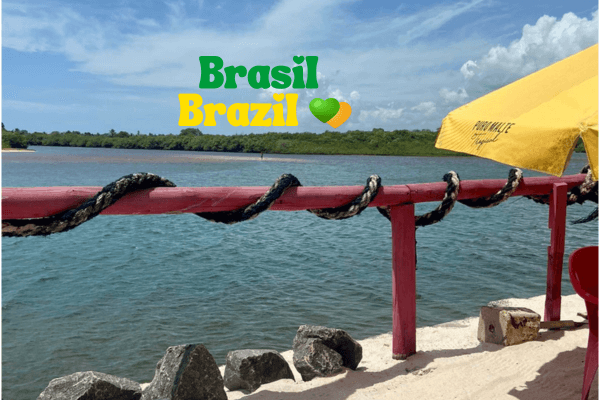
Taking the Pledge to Protect Our Oceans:
I know these issues are not new, and many people, organizations, and scientists are constantly discussing these subjects. However, we must continue to make a difference, go beyond beach cleanups, and embrace a long-term commitment to safeguarding our oceans.
Here are some ways we can pledge to protect our oceans:
1. Reduce Single-Use Plastic:
Minimize using single-use plastic items such as straws, bags, and disposable cutlery. Choose reusable alternatives whenever possible. Unfortunately, I found very few grocery stores in Brazil that promote reusable plastic bags or alternative solutions.
2. Proper Waste Disposal:
Recycling plastic and other recyclable materials ensures proper waste disposal. Dispose of trash in designated bins, preventing it from ending in our oceans. As I walked on the beaches of Brazil, it was not unusual to see waste disposal on many beaches.
3. Support Eco-friendly Initiatives:
Encourage businesses to adopt sustainable practices and support organizations working towards reducing plastic waste and promoting ocean conservation. In Brazil, many initiatives encourage and are pioneers in this subject.
The Tamar Project is an example of an organization recognized as a leader in supporting marine life. The project’s main objective is to protect sea turtles from extinction in the Brazilian coastline. I have visited the Tamar Project many times, and it was a wonderful experience. You can spend the day, bring the whole family, and witness their incredible work to save turtles and other marine animals. You can find many sites in English with information about this organization; however, their website in Portuguese is more educational. See it here: https://www.tamar.org.br/index.php
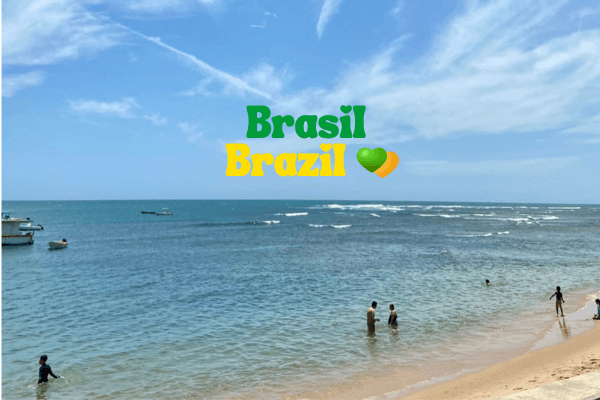
4. Spread Awareness:
Educate others about the impacts of plastic pollution on our oceans. Share information on social media, organize awareness campaigns and engage in discussions to inspire collective action. Many organizations are involved in doing this; unfortunately, we need more people sharing and participating.
5. Advocate for Policy Changes:
Support policies that reduce plastic pollution and promote responsible waste management. Urge policymakers to implement stricter regulations on single-use plastics and invest in sustainable alternatives.
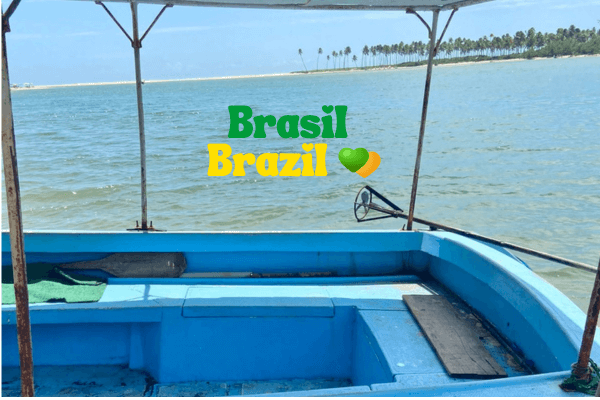
Conclusion:
The health of our oceans depends on our actions today. By pledging to protect our oceans, we can prevent further degradation and ensure a thriving marine ecosystem for future generations. We can work towards a cleaner, healthier, and more sustainable planet through responsible waste management, beach cleanups, and collective advocacy. Let’s stand together and make a difference, one beach at a time. Anywhere and in Brazil!
